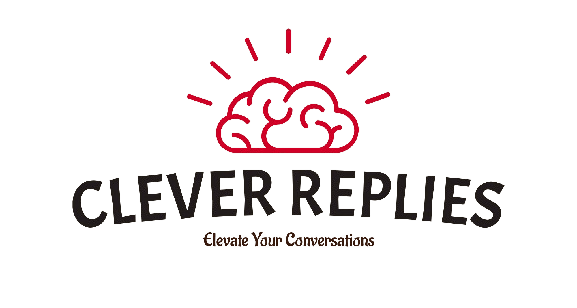Being called a narcissist is one of the most common insults today, and believe me, most people who use this word don’t even know its true meaning. (Ref: List of Commonly Misused Pop Psychology Terms)
If you’ve ever been at the receiving end of this insult, you know how hurtful and confusing it can be.
I remember the first time someone called me a narcissist. The sting of the word lingered for days, making me question how I was being perceived.
One thing I learned is that having an instant comeback can prevent you from dwelling on the situation afterward.
That’s why I am here. Our goal through this blog is to provide you with responses that can help you navigate these moments with ease.
We’ll explore not only sharp responses/comebacks but also share practical tips for handling these accusations gracefully.
How to Respond When Someone Calls You Narcissist?

When someone hits you with the “narcissist” label, how you respond can really shape the outcome of the situation. Here are some down-to-earth tips to help you handle the label with grace and confidence:
1. Stay Calm
Take a deep breath, stay calm, and approach the conversation with a cool head. This helps you think more clearly and keeps the situation from escalating.
2. Ask for Clarification
If you’re puzzled about why someone is calling you a narcissist, don’t hesitate to ask for more details.
A simple “Can you explain what you mean by that?” can give you the context you need and open the door for a more productive conversation.
3. Stay Confident
Remember, someone else’s opinion doesn’t define your worth. Keep your confidence intact and remember that how you view yourself is what matters most.
Your self-respect and values should come from within, not from someone else’s label.
4. Deflect with Humor
Sometimes, a bit of humor can help lighten the mood. A well-timed, playful remark can ease tension and help shift the conversation away from confrontation.
Just make sure your humor is light-hearted and doesn’t come off as dismissive.
5. Consider the Source
Think about who’s calling you a narcissist and whether their opinion is worth your time. If it’s someone whose views you respect, it might be worth addressing.
If it’s coming from someone whose opinion doesn’t matter much, it might be better to let it roll off your back and not let their words get to you.
RELATED: 50 Phrases to Disarm a Narcissist
100+ Comebacks When Someone Calls You a Narcissist | Clever Replies

Casual Responses
- “I didn’t know self-love was a crime!”
- “Well, I’m certainly not bored with myself!”
- “It’s all about self-confidence, not narcissism.”
- “Guess I’m just really into self-improvement!”
- “It’s called self-love—maybe you should try it!”
- “Maybe I’m just very comfortable in my own skin.”
- “If self-respect is narcissism, then I’ll take that title.”
- “I believe in myself; is that really such a bad thing?”
- “I’m just really enthusiastic about my own potential.”
- “I’m not sure how loving myself became a bad thing.”
- “I’m flattered you think so highly of my self-confidence.”
- “I think it’s healthy to have a good opinion of yourself.”
- “I just think self-appreciation is important for everyone.”
- “If celebrating yourself is wrong, I don’t want to be right.”
- “I guess I’m just really committed to being my best self.”
- “I’d rather be a confident narcissist than a timid doormat.”
- “I’m just really good at appreciating myself—no harm in that!”
- “If being positive makes me a narcissist, then I guess I’m guilty.”
- “I call it self-care, but I can see how it might seem narcissistic.”
- “If enjoying my own company makes me a narcissist, then I’m okay with that.”
ALSO READ: 51 Funny Quotes To Annoy a Narcissist
Professional Responses
- “I value constructive criticism and am open to discussing any issues you may have.”
- “I’m sorry if my confidence came across differently. Let’s discuss what’s on your mind.”
- “It’s important to me to address any misunderstandings. Can you provide more context?”
- “I strive for professionalism in all interactions. If there’s a concern, let’s address it directly.”
- “I appreciate feedback and would like to understand what specifically led to this perception.”
- “Understanding different perspectives is important to me. Let’s explore what led to this view.”
- “If my actions have been misinterpreted, I’m willing to have a conversation to clear things up.”
- “I strive for self-assurance in my work. If there are specific concerns, I’d like to address them.”
- “I’m receptive to feedback and eager to understand how I can better support our team’s objectives.”
- “My aim is to contribute positively. If there’s a specific behavior that’s problematic, please let me know.”
- “I’m committed to professional growth. If my behavior is impacting our work, please share your thoughts.”
- “I aim to be confident in my role, but I’m open to feedback on how I can better collaborate with the team.”
- “My focus is on achieving our goals together. If my approach needs adjustment, I’m open to suggestions.”
- “I’m committed to maintaining a respectful and effective work environment. Let’s discuss any issues openly.”
- “I appreciate the opportunity to clarify any misunderstandings. Please provide details so we can resolve this.”
Funny Responses
- “I prefer the term ‘self-love enthusiast’!”
- “I guess I’m just very into my own fan club.”
- “I’m just a big fan of my own autobiography!”
- “I’m not narcissistic; I’m just very ‘self-aware’.”
- “My mirror and I have a very close relationship.”
- “I’m not a narcissist; I’m a self-appreciation expert!”
- “I’m not a narcissist; I’m a self-esteem ambassador.”
- “Hey, someone’s got to be the hero of my own story!”
- “I’m a narcissist? I thought I was just really interesting.”
- “I’m just practicing being my own biggest cheerleader.”
- “I’m not narcissistic; I’m just exceptionally self-reliant.”
- “If loving myself makes me a narcissist, then I’m a VIP!”
- “If talking about myself is a crime, I’m a repeat offender!”
- “If admiring my reflection is wrong, I don’t want to be right!”
- “I’m just very invested in my own personal growth—literally!”
- “I guess I’m just the star of my own show—what can I say?”
- “I’d love to chat about it, but I’m really busy admiring myself.”
- “If being my own biggest fan is a crime, then call me a criminal!”
- “I call it self-celebration, but I can see how it might look narcissistic.”
- “If confidence were a superpower, I’d be the superhero of self-love!”
ALSO READ: Comebacks When Someone Calls You ‘Stupid’
Scenario-Based Responses

1. If Received During a Serious Argument
Here are 15 comebacks for when the narcissist label comes up during a serious argument:
- “It seems like we’re having a deeper issue here. Let’s focus on resolving that.”
- “I’m here to find a compromise. Let’s concentrate on solving the problem together.”
- “I understand this is a heated moment. Can we work on finding a solution together?”
- “I’d rather address the specific points of our disagreement rather than label each other.”
- “Let’s discuss the actual problem rather than using labels that don’t help us move forward.”
- “I hear that you’re frustrated. Let’s work on solving the issue rather than naming each other.”
- “My goal here is to understand your perspective. Can we stick to discussing our concerns?”
- “I’m committed to finding a resolution. Can we shift our focus to the actual problem at hand?”
- “If we keep labeling each other, we’ll never resolve our issues. Let’s tackle the real problem.”
- “I want to understand your concerns better. Can we focus on the specifics rather than labels?”
- “If you feel I’m not listening, let’s focus on improving our communication instead of using labels.”
- “Using terms like that doesn’t help us move forward. Let’s address the root of our disagreement.”
- “Labeling each other won’t help us resolve the issue. Let’s address the specific concerns directly.”
- “Accusations like this can derail our discussion. Let’s refocus on what’s causing the disagreement.”
2. When It’s Because of Their Own Insecurities
Here are 15 comebacks for when the narcissist label reflects the other person’s insecurity:
- “I see that you’re feeling insecure. Can we discuss what’s really bothering you?”
- “I’m sorry if my confidence is making you uncomfortable. What can I do to help?”
- “It seems like there’s more to this than just a label. Let’s explore the real concerns.”
- “If my self-assurance is causing you stress, I’d like to understand how we can address it.”
- “Your feelings are important to me. Can we discuss what’s leading to these insecurities?”
- “I didn’t mean to make you feel this way. Let’s work on addressing the core issue together.”
- “If there are underlying issues, I’d like to help resolve them. Let’s work through this together.”
- “It sounds like there might be underlying issues. Let’s focus on addressing those together.”
- “My intention is never to make you feel insecure. Let’s focus on what’s causing this reaction.”
- “I’m here to listen. If my behavior is impacting you, let’s have an open conversation about it.”
- “I understand that my behavior might be affecting you. Let’s talk about what’s really going on.”
- “I can see that my actions might be triggering insecurities. Let’s talk about how we can address this.”
- “I understand that my confidence might be affecting you. Let’s address any deeper concerns you have.”
- “It sounds like you’re dealing with some personal concerns. How can I support you in addressing them?”
- “I’m committed to understanding and resolving any issues between us. Can we discuss what’s really at the root?”
ALSO READ: How To Respond to A Declined Invitation?
3. When Responding to Constructive Criticism
Here are 15 comebacks for when the narcissist label comes up in response to constructive criticism:
- “I appreciate your feedback. Let’s focus on how I can improve based on your points.”
- “I’m set to self-improvement. Let’s work together on addressing the issues you’ve raised.”
- “I understand your feedback and want to use it to get better. Can we go over the details?”
- “I value your input. Let’s discuss how I can make changes based on what you’ve observed.”
- “Thank you for the constructive criticism. I’d like to discuss how I can address your concerns.”
- “I’m focused on enhancing my skills and would like to discuss how to best apply your feedback.”
- “Your critique is valuable. Let’s focus on actionable steps I can take to enhance my performance.”
- “Let’s use this feedback to guide positive changes. What specific actions would you suggest I take?”
- “Thank you for pointing out areas for improvement. How can we best approach these changes together?”
- “Your insights are important to me. Let’s collaborate on finding solutions to the areas you’ve highlighted.”
- “I’m taking your feedback seriously and am interested in how I can improve. Let’s outline the next steps.”
- “I’m here to learn and grow. Can we focus on how I can effectively respond to your constructive feedback?”
- “I’m open to hearing how I can grow from this feedback. Can we talk about specific areas for improvement?”
- “I appreciate the constructive criticism and would like to understand more about how I can adjust my approach.”
- “I’m dedicated to making improvements. Can we review the details of your feedback to ensure I address them properly?”
4. In Online or Social Media Exchanges
Here are 15 comebacks for when the narcissist label appears in online or social media exchanges:
- “I’d like to keep this discussion focused on the issues rather than personal attributes.”
- “It’s important to stay on topic. Let’s focus on the issue rather than personal critiques.”
- “I value open dialogue and would like to keep this discussion respectful and focused.”
- “I’d prefer to address the substance of our conversation rather than resorting to labels.”
- “It seems like there might be a misunderstanding. Can we clarify what we’re discussing?”
- “If you have concerns, I’m open to discussing them. Let’s keep the conversation productive.”
- “I prefer to focus on meaningful discussions rather than labels. Let’s address the actual topic.”
- “Labels can be misleading. Let’s work on understanding each other’s viewpoints more clearly.”
- “Online discussions can be tricky. Let’s ensure we’re addressing the real points of contention.”
- “I’m here to contribute to a positive exchange. Can we move past labels and discuss the matter?”
- “I believe in respectful communication. Can we steer this conversation back to the original topic?”
- “Online interactions can sometimes be misinterpreted. Let’s discuss the specifics of the issue at hand.”
- “I’m here to engage in constructive conversation. Let’s keep the focus on the issue, not personal labels.”
- “If my online presence is causing concern, let’s talk about the specifics so we can address it constructively.”
- “I’m committed to having meaningful conversations. Can we move away from labels and focus on the actual topic?”
5. Comebacks When Being Called A Narcissist By A Narcissist
Here are 15 comebacks for when you’re called a narcissist by someone who might be a narcissist themselves:
- “I’m here to listen to your concerns, but let’s try to stay on topic.”
- “Let’s focus on resolving our issues rather than labeling each other.”
- “I’m open to discussing how we can both grow from this experience.”
- “It’s interesting you’d say that—self-reflection can be quite revealing.”
- “It sounds like you’re projecting. Let’s stick to the facts of the situation.”
- “I think it’s important we both stay open to self-improvement, don’t you?”
- “It’s fascinating how certain traits are perceived differently by everyone.”
- “If we’re discussing behavior, it might be helpful to look at both sides objectively.”
- “Rather than focusing on labels, let’s find a way to address our concerns directly.”
- “It’s always good to reflect on feedback, but let’s also consider the broader picture.”
- “I’m more focused on understanding your perspective. Can we discuss what you mean?”
- “Sometimes the traits we notice in others are reflections of what we’re feeling ourselves.”
- “I’m committed to constructive conversation. Let’s address the real issues rather than labels.”
- “It seems like we both have areas to work on. Can we discuss how to improve the situation?”
- “If we’re both committed to understanding each other, we can make progress without personal attacks.”
ALSO READ: 100+ Savage Comebacks To Use in an Argument
Final Take
It’s natural to feel taken aback or defensive when someone calls you a narcissist.
However, Just because someone labels you a narcissist doesn’t mean it’s accurate. Maybe they are trying to tease you or check how you react.
Remember, It’s completely up to you whether you just digest or stand in law for yourself. You could freeze, get upset, or… you could have a comeback ready that turns the tables in your favor.
FAQs
Why People Call You a Narcissist?
People might label you a narcissist for several reasons:
- Insecurity: They might be projecting their own insecurities or shortcomings onto you.
- Misunderstanding Confidence: What you see as confidence might come off as arrogance to others.
- Casual Use: The term may be used casually without a true understanding of its meaning.
- Conflict: It can be a way to express frustration or anger during heated moments.
Is calling someone a narcissist slander?
Calling someone a narcissist is not necessarily slander if it’s an opinion rather than a false statement presented as fact. However, labeling someone in a derogatory way can be harmful and may contribute to misunderstandings or conflict. It’s best to address concerns with specific behaviors rather than using labels.
Why do narcissists call others narcissists?
Narcissists may call others narcissists as a form of projection, where they attribute their own traits or behaviors to others. This tactic can deflect attention from their own issues and shift the focus away from their behavior onto the perceived flaws of others.
What to do when a narcissist calls you a narcissist?
When a narcissist calls you a narcissist, focus on maintaining your composure and not engaging in defensive or confrontational responses. Redirect the conversation to address specific issues or behaviors rather than labels. Stay grounded and use constructive communication to navigate the situation effectively.




